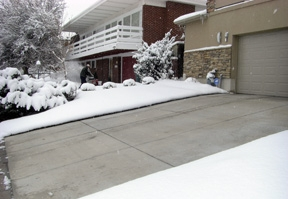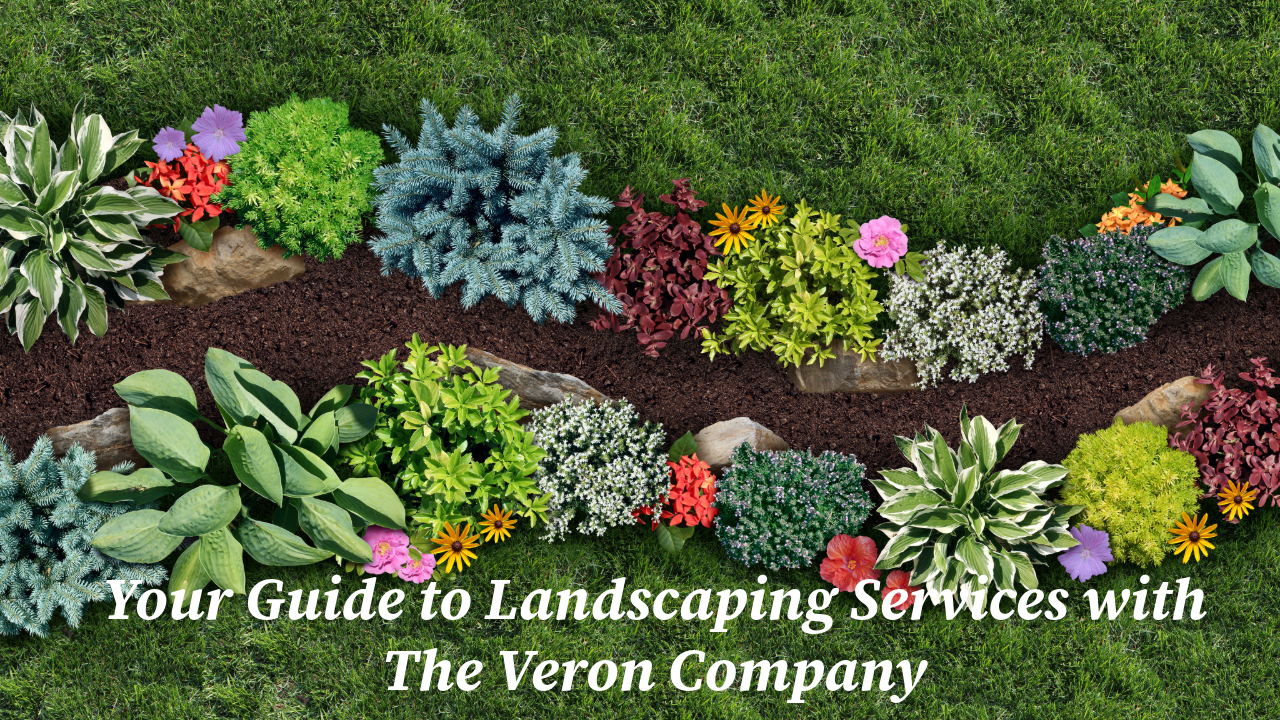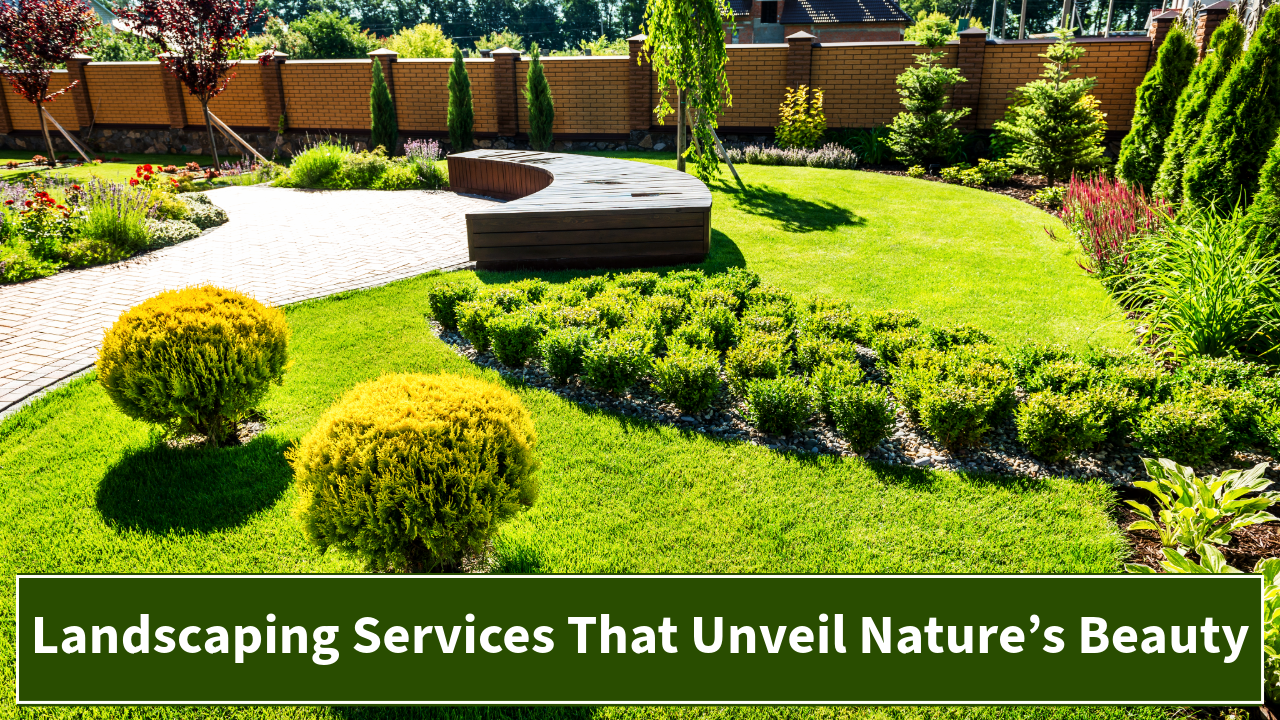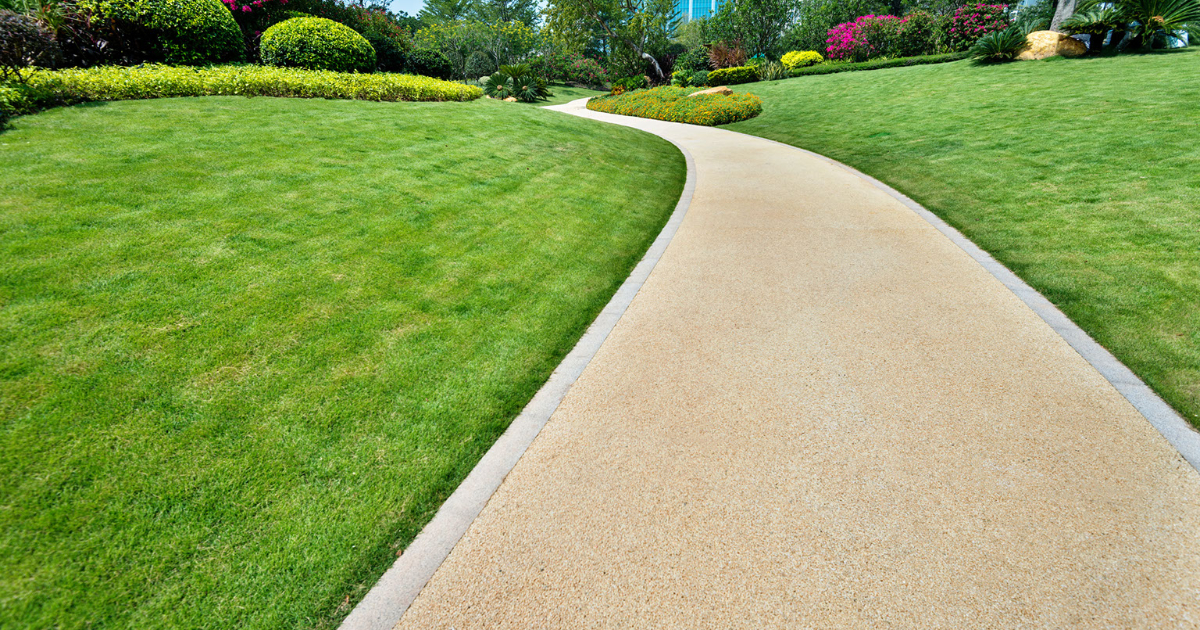For commercial landscaping, how to prevent salt damage in winter can be a question that comes up often with our clients. Winter comes with many hazards. Surprisingly, the one thing that’s supposed to help melt excess snow can also be the most damaging to your vegetation and paved areas. Parking lots, walkways and the beautiful paved brick accents you worked so hard to create are just as vulnerable as your plants and trees to the toxic impact of de-icing salt.
What De-Icing Salt Does to Your Vegetation
Sodium chloride, the most commonly used de-icing salt, can really ruin your grass and other plantings. As with the human body, when too much salt is introduced, you can become dehydrated. The same is true for your vegetation. The salt gets absorbed into the soil and prevents the roots of plants from getting enough moisture, as well as valuable nutrients. This results in yellow or brown grass and needles, and evergreen trees won’t look so green anymore. This is really unfortunate, considering that times of snow melt could provide so much hydration—if only the plants could have it! Basically, salt sucks the life—or water—out of leaves, preventing the process of photosynthesis and new blooms in the spring.
What De-Icing Salt Does to Your Concrete
All of this is bad enough, but salt goes a step further in degrading your paved areas as well. If the concrete isn’t sealed properly by a reputable commercial landscaper, you’ll have pores that will take in the toxic de-icing chemicals, resulting in discolored areas. You’ve seen it before. It looks like a white powder coating. The chemicals in the salt also cause expansion, which creates cracks and chipping in concrete. In addition, brick pavers can become loose, which is especially hazardous for commercial landscapes.
How Can You Protect Your Property from Salt Damage?
First of all, don’t go cheap. Some of the most inexpensive de-icing products are made with the most toxic chemicals. If you’re willing to pay a little more, you can find a formula that’s more environmentally-friendly. And you’ll save money in the long run because you won’t have all the repair costs associated with damage caused by de-icing salt. For example, there’s a product found in many home improvement stores called Calcium Magnesium Acetate (CMA), which is more environmentally –friendly than sodium chloride. It is similar to vinegar, which makes it safer for plants and animals. It’s an effective solution for temperatures above 20 degrees.
Protecting Paved Areas from Salt Damage
Stone walkways, parking lots and other paved areas are often dumped on by snow plows. This is a problem because in order to stay in business, you need to melt that snow as quickly as possible. So here are a few tips to reduce salt damage:
- Use a snow blower to get more control of where the excess snow is piled up.
- Try to remove snow before it gets too hard and too deep.
- Consider sawdust or cat litter for traction on walkways.
- Reduce the amount of de-icing salt—or try an environmentally-friendly product.
It’s best to work with contractors who are as committed to the environment as you are. Also, if you’d like to prevent those unsightly cracks in your paved areas, check with a contractor who uses specialized equipment. For example, a plow with a urethane or rubber blade is more gentle than regular plows. For sidewalks, a large push broom would work well. When shopping for commercial landscapers and snow removal companies, see if they have a truck with a rotating broom—another good choice to prevent damage.
The Veron Company provides environmentally-friendly landscaping solutions, as well as snow removal services. Contact us today to let us go to work for you!
The Veron Company, serving Marlborough, Massachusetts and surrounding areas, including Cape Cod since 1982.







